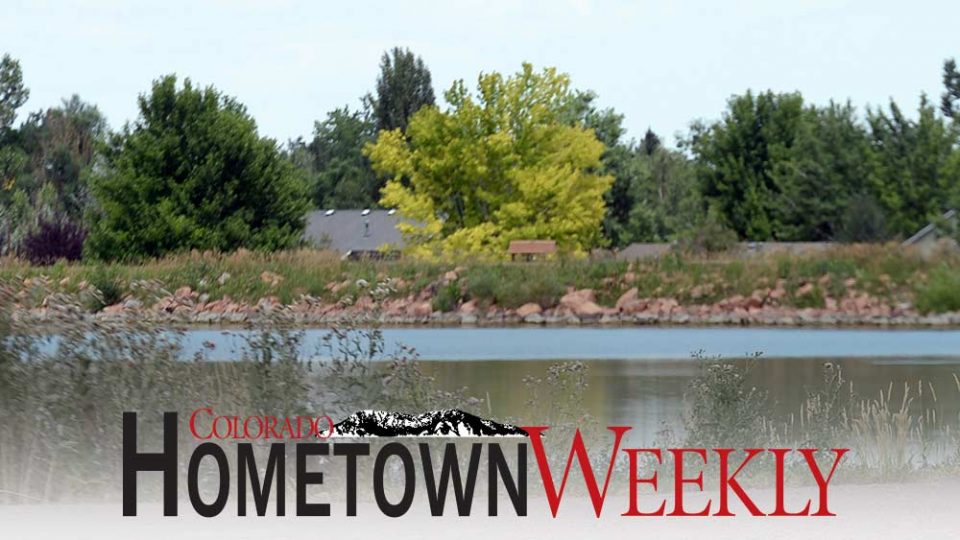By Ryan CallEco-Cycle Outreach Coordinator
Building a zero waste community can take many different approaches and involves all sectors of a community, while resulting in conserving resources, reducing greenhouse gas emissions, conserving water and energy, and creating local jobs. In short, a zero waste community makes sustainable choices that lead to numerous environmental, economic and social benefits.
To advance zero waste in a community, policies and programs must be thoughtfully crafted to meet the specific needs of the community. For example, Boulder’s “Universal Zero Waste Ordinance” requires recycling and composting access for all households, multi-family buildings and businesses. Also, Lafayette and Louisville automatically include compost service as part of their waste collection program.
Another Boulder County community taking big steps towards zero waste is the Town of Erie. This fast-growing community is home to the Front Range Landfill — a constant reminder of the vast amount of waste generated locally. Erie is taking bold steps to reduce waste, first by expanding its services at the Recycling Center and Clean-up Days, as well as passing a Special Events Zero Waste Policy. Soon, Erie will implement a Pay-As-You-Throw (PAYT) system that incentivizes households to recycle and compost more and send less materials to the landfill. Let’s take a closer look at these impactful zero waste actions.
Going zero waste at special events
A “zero waste” event takes specific steps to reduce waste generated by vendors and event attendees, including providing recycling and composting bins alongside trash bins throughout the event. As we previously mentioned, zero waste events are a super-effective way to divert valuable recyclable and compostable material away from the landfill. For example, at the 2021 Erie Biscuit Day event, 95% of all waste was either recycled or composted.
Starting this year, Erie will require that all events offer recycling and composting at the event, as well as have a zero waste management plan to further reduce waste. For more information on Erie’s zero waste events, visit www.erieco.gov/1939/Zero-Waste-Events. If you are interested in helping with zero waste events, email [email protected].
Pay-As-You-Throw ordinance
It is well-known that land is one of the most expensive commodities in Colorado and expanding landfills to accept more waste uses valuable space. A Pay-As-You-Throw (PAYT) waste system can help reduce waste going to landfill.
Traditionally, households pay a flat rate for trash and recycling and pay extra for composting services. There is no incentive or reward for recycling or composting more. In a PAYT system, households that produce less trash as measured by the size of the trash bin they choose (32-, 64-, or 96-gallons), and recycle and compost more, pay less.
“Just as we are charged for the amount of water, electricity and natural gas we use, in a Pay-As-You-Throw system, residents pay for the amount of waste they send to the landfill and save money if they recycle and compost more,” says Tyler Kesler, Erie’s Sustainability Manager.
PAYT systems have helped some communities double or even triple their recycling and composting rates. In 2023, the town of Erie has plans to implement a PAYT system with tiered pricing based on the size of a household’s chosen trash bin, with unlimited single-stream curbside recycling and composting included. With the Front Range Landfill in its backyard, Erie is taking action to stop burying itself in its own trash and encourages other municipalities that use the landfill to do the same.
Local zero waste policies and programs can help entire communities move forward with sustainable waste management practices. If you want to promote zero waste policies and programs in your community, you can find helpful tools at www.ecocyclesolutionshub.org.
Eco-Cycle is one of the oldest and largest nonprofit recyclers and Zero Waste organizations in the U.S. Eco-Cycle innovates, implements and advocates for local and global Zero Waste solutions to foster a more regenerative, equitable and climate resilient future. For more information: www.ecocycle.org.


